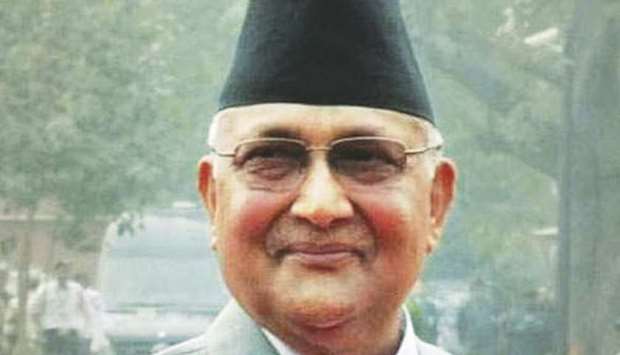Nepal's prime minister on Monday named former central banker Yubaraj Khatiwada as the Himalayan nation's finance minister, to revive a quake-hit economy emerging from a long civil conflict.
K.P. Sharma Oli, who was appointed for a second term last week, campaigned on a promise to fight corruption and boost growth. Analysts say the nearly two-thirds victory his coalition with Maoist former rebels won in the 275-member parliament gives him the mandate to usher in change.Khatiwada, who had served as governor of the central bank, Nepal Rastra Bank, is a monetary policy expert and an alumnus of the Delhi School of Economics in neighbouring India.
New ministers in Oli's core team were also sworn in on Monday, a presidential spokesman said.
Oli named Ram Bahadur Thapa, a former guerrilla commander of the Maoist party, as the interior minister in charge of law and order, and national administration.
An alliance between Oli and former rebel chief Prachanda swept to victory in elections late last year. The Maoists ended their decade-long civil war under a 2006 peace deal.
"His nationalism card was a useful tool for elections, but now he has to deliver on his campaign promise of stability and prosperity," said Kunda Dixit, editor of the Nepali Times weekly.
Nepal has seen 11 changes of government in as many years. Instability has fed corruption, slowed growth and hit recovery from a 2015 earthquake that killed 9,000 people.
Western diplomats say the stunning election win by the left "emboldened" Nepal's other giant neighbour, China, which is using its Belt and Road Initiative (BRI) to strengthen ties.
Oli, 66, took a tough position with New Delhi during a border blockade in 2015 and 2016, reaching out to China for the use of its roads and ports, potentially ending his landlocked nation's sole dependence on India for transit.
He has vowed to revoke a decision by the previous government to scrap a deal with China Gezhouba Group Corp to build the $2.5bn Budhi Gandaki power plant near Kathmandu.
Both Asian giants compete to influence Nepal, home to Mount Everest, the world's highest mountain, and have injected huge amounts of money in aid and investment.
Oli has vowed to boost Nepalis' income to $5,000 per head within a decade, up from $740 now, a goal that would require the economy to grow 12% to 13%, versus 4.2% now, analysts say.

